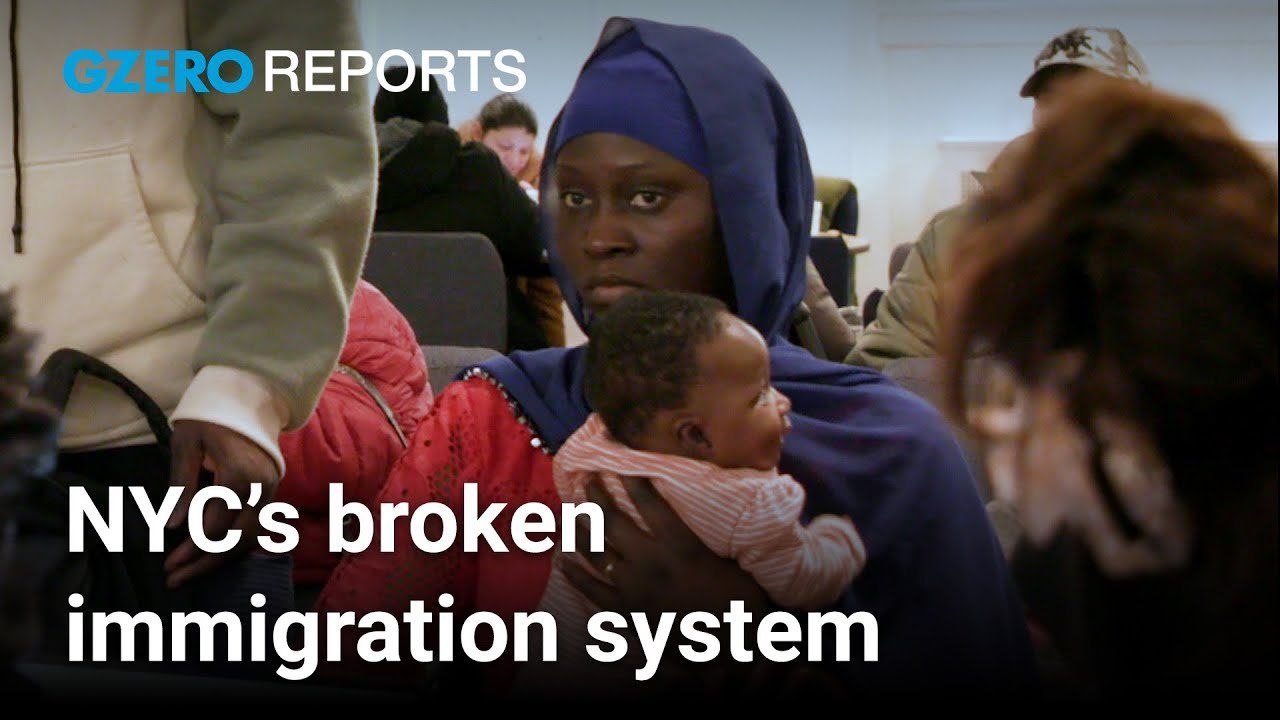GZERO World Clips
The New York migrant crisis up close

The New York migrant crisis up close | GZERO Reports

Since 2022, New York City has absorbed more than 170,000 migrants, mostly sent on buses by Texas officials from the US-Mexico border. Many of them are asylum-seekers who hail from South American countries facing political and economic upheaval, like Venezuela and El Salvador. But increasingly, people from Asia, western Africa, and the Caribbean have been making the difficult journey to the US via the southern border as well.
Unlike other so-called “sanctuary cities,” New York has a legal mandate, known as a consent decree, that requires the city to provide shelter to anyone who asks for it. But the already under-funded, under-resourced system is struggling to deal with the influx of so many people. Adding to the chaos, in October, the city changed its policy to require everyone in the shelter system to reapply for a bed every 30-60 days. For asylum seekers already trying to navigate byzantine legal and healthcare systems, the instability can have devastating consequences.
That’s why grassroots organizers like Power Malu of Artists Athletes Activists, Adama Bah of Afrikana, and Ilze Thielmann of TeamTLC have been stepping up to fill a major gap in the city’s immigration system: greeting arrivals, pointing them towards resources, providing food and clothing. Most crucially, they're help people understand their rights and apply for asylum, so they can get work permits and find permanent housing.
Speaking from the front lines of this crisis, the organizers say the city isn't fully meeting the needs of the migrants coming here, despite spending $1.45 billion on migrant costs alone in 2023. "The illusion is that they're in these beautiful hotels and they're getting all of these services and it's not true," Malu says, "That's why you have organizations like ours that have stepped up and had to change from welcoming to now doing case management, social services, helping them with mental health therapy."
GZERO’s Alex Kliment spent time on the ground with newly-arrived asylum-seekers and the volunteers to better understand the reality on the ground, how this current crisis getting so much national attention is functioning day to day, and if the city could be doing more to help.
GZERO has reached out to City Hall for comment and will update with any response.
Learn more about the organizations mentioned in this report:
Somewhere in the Donbas region, Ukrainian soldier Artem Bondarenko says he hasn’t slept through the night in months as he defends Eastern Ukraine.
In this Quick Take, Ian Bremmer warns that US military strikes on Iran are “looking increasingly imminent” as diplomacy appears to stall.